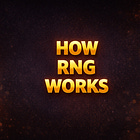Are Slots Rigged? The Ultimate Guide
The myths, the math, and the hidden tricks behind your favorite games
In gambling circles, people constantly throw around accusations that slots are rigged, that the results are fixed long before you ever hit the spin button, and that players are being scammed on purpose. But how much truth is there to these suspicions?
Why do people think slots are rigged?
When gamblers say a slot is rigged they usually mean more than just that the game has a house edge. Everyone knows casinos are businesses, not charities. The math always favors the house in the long run and that’s how gambling works.
But most players use rigged to describe something more sinister. They imagine secret algorithms that watch how they play and adjust the odds against them. They worry that bigger bets get worse chances than smaller ones or that the outcomes aren’t random at all, just pre-programmed sequences that guarantee they’ll lose.
How do slots actually work?
Modern slots run on pseudorandom number generators or PRNGs. These are complex algorithms that produce sequences of numbers that only look random. Underneath, they follow strict mathematical rules.
The system starts with a seed like the exact millisecond of the spin or tiny quirks in your device’s activity and from there generates outcomes that appear totally unpredictable. In reality, every result is locked in by math.
The important thing is that high-quality PRNGs are so advanced and fast that there’s no practical way for players or even casinos themselves to predict what’s coming next.
But what happens when someone cracks the system?
But what happens if the protection isn’t good enough? In 2014 a team of mathematicians from Saint Petersburg found a weakness in Aristocrat slots. They figured out patterns in the PRNG and learned exactly when to raise their bets for a guaranteed win.
This case was unique because the players actually knew when the slot was “hot.” Over a few months they took millions of dollars from casinos in different countries before their scheme was uncovered.
Can you really trust slots?
Given how technical all this is it’s fair to wonder if modern slots can actually be trusted.
For the most part, yes. Big-name providers are required to submit to regular audits by independent labs like eCOGRA, GLI and iTech Labs. These experts test the games to ensure each spin is truly independent, unaffected by previous results, bet sizes or how you’ve played before.
And here’s a key point. Casino operators can’t technically tamper with the outcomes. They don’t control the spin results, they just license the games.
So where are the real dangers?
Small providers and outright fakes
Dishonest developers or creators of blatant copies can use algorithms that really are rigged against the player.
A clear example is the slots Hi-Lo Gambler and Reel Deal from Realistic Games. These games were even found in major casinos like Betfred and Bet365,but when statisticians crunched the numbers they found odds that didn’t match the published rules. The deviations were so huge they couldn’t be chalked up to randomness.
When the scandal broke Betfred acknowledged issues with Reel Deal but brushed it off as a help file error. In the end only a few players ever saw compensation.
Demo games that don’t match the real thing
Another tactic is rigging the demo mode. A classic case was Shamrock Isle by RTG. Its free version handed out bonus rounds almost twice as often as the real-money game.
A deep dive by Wizard of Odds covering hundreds of thousands of spins proved the demo was intentionally set up to look generous. But once players switched to betting real cash the odds dropped sharply.
By regulation, demos are supposed to use the same math as the paid games. In practice though it’s nearly impossible for players to verify that.
The mystery of progressive jackpots
Providers generally don’t disclose the exact odds or rules behind jackpot triggers. A few exceptions exist. For instance documentation for casino operators reveals that Mega Joker by NetEnt hits about once every 50,000 spins at a €10 bet and only once every 500,000 spins at €1.
But for most slots jackpot mechanics stay hidden. It gets even murkier with jackpots set up directly by the casino. Who’s to say they’re awarded fairly at all?
When slots work in the player’s favor
Interestingly there have been times when slots were unintentionally rigged in favor of players usually because of programming oversights.
For example Temple, Celebration and Beast of Wealth by Play’n GO had in-game jackpots that dropped just as often on minimum bets as on maximum bets which made it mathematically profitable to play at the lowest stakes..
Street Fighter by NetEnt let players lower their bets right before triggering a bonus but the payout was still based on the previous higher wager.
True Lab in 2025 had a currency conversion glitch that let players cash out bonuses at a 1 to 1 rate in euros even if the credits were originally accumulated in weaker currencies.
These kinds of bugs are incredibly rare and usually patched quickly. But they prove that once in a while a slot can be rigged to favor the player.
Bottom line
Slots from big providers in well-regulated casinos are fair.
But there’s always a chance of running into fake games or manipulated scripts especially in unlicensed casinos.
Even legitimate slots sometimes have bugs sometimes tilting things in favor of the house but just as surprisingly sometimes tipping toward the player.
What about you? Have you ever felt like a slot was rigged or stumbled on something that seemed too good to be true? Share your stories below.




Honestly, every time a bonus round flops, I still catch myself thinking the slot must be rigged. Even though I know that’s not really how it works. Just human nature, I guess.